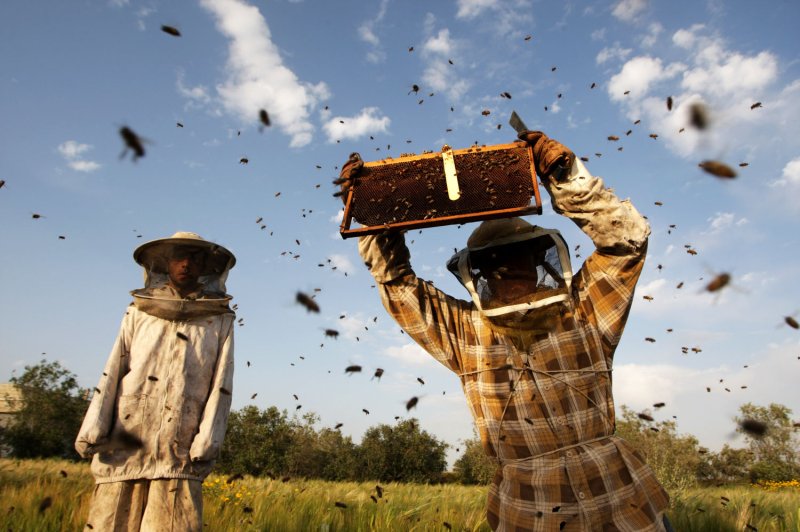A honeybee farm in South Carolina lost more than 3 million honeybees due to the aerial spraying of an insecticide that targets Zika-carrying Aedes Aegypti mosquitoes. File photo by Ismael Mohamad/UPI |
License Photo
SUMMERVILLE, S.C., Sept. 2 (UPI) -- More than 3 million honeybees were killed in South Carolina after the aerial spraying of an insecticide targeting mosquitoes that could carry the Zika virus.
The incident occurred at the Flowertown Bee Farm and Supply in Summerville, S.C., on Sunday. Juanita Stanley, beekeeper and co-owner of the bee farm, said 46 beehives were lost.
"On Saturday, it was total energy, millions of bees foraging, pollinating, making honey for winter," Stanley said Thursday. "Today, it stinks of death. Maggots and other insects are feeding on the honey and the baby bees who are still in the hives. It's heartbreaking."
Stanley said she now needs to destroy the hives, the honey and her equipment following the insecticide contamination.
Dorchester County used the Trumpet product which contains the naled pesticide, recommended by the Environmental Protection Agency and the Centers for Disease Control and Prevention for killing the Zika-carrying Aedes Aegypti mosquitoes
Dorchester County Administrator Jason Ward said the county followed the manufacturer's recommendation on minimizing hazard to bees. The recommendation, which is also the state's policy, says the product should not be applied more than two hours after sunrise or two hours before sunset -- when bees are usually most active.
Stanley said she was notified about trucks spraying the pesticide but not about aerial spraying. She said she "would have been screaming and pleading on their doorstep if they had" told her about aerial spraying, urging them to "do it at night when bees are done foraging."
"But they sprayed at 8 a.m. Sunday, and all of my bees were out, doing their work by then ... There was no need for a bee suit Monday morning to go down there, because there was no activity. It was silent," Stanley said. "Honestly, I just fell to the ground. I was crying, and I couldn't quit crying, and I was throwing up."















